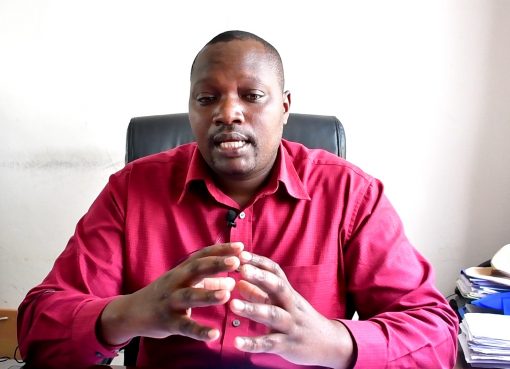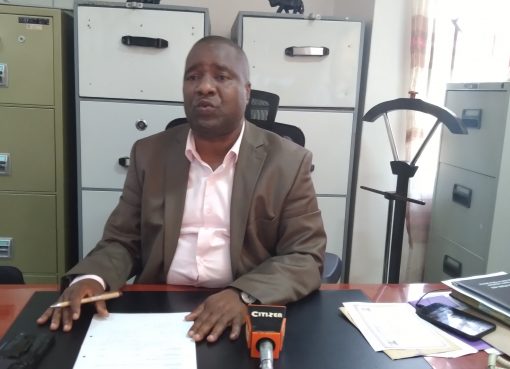The rapidly developing digital economy provides opportunities to boost our economic growth and create jobs, the Treasury Cabinet Secretary (CS), Henry Rotich has said.
Rotich while presenting the Budget for the Financial year 2019/20 said that as a country we need to invest more in this area to boost literacy and digital skills. We also need to invest in digital infrastructure and improve access to affordable broadband connectivity.
In his Budget speech on Thursday dubbed ‘Creating Jobs, Transforming Lives – Harnessing the “Big Four” Plan, Rotich said that to support the ICT sector and take advantage of the digital dividend, and consolidate Kenya’s leading position in the technology space, Treasury has allocated Sh. 3.2 billion for the Digital Literacy Programme and Sh.2.9 billion for Government Shared Services.
He continued,“Additionally I have allocated Sh.2.8 billion for National Optic Fibre Backbone Phase II expansion and Sh. 1.1 billion for Installation of an Internet Based 4000 Network. I have also set aside Sh.7.2 billion for the on-going construction of Konza Technopolis Complex and another Sh.5.1 billion to support the Konza Data Centre and Smart City Facilities project.”
The CS explained that the Government has eased service delivery to the public through digitalization of critical services in the e-citizen portal.
“We have e-Registry, and we are digitalizing land transaction services, business registration, motor vehicle and driver’s license services and services under the registration of persons, including passports,” said Rotich.
He added that as a result of the ICT penetration, Kenya has been ranked seventh in Africa in e-commerce uptake and 85th globally, in the United Nations Conference on Trade and Development (UNCTAD) Business-to-Consumer E-commerce Index, 2018.
“In May 2019, H.E. the President launched Kenya’s Digital Economy Blueprint for Africa in Kigali, Rwanda. The Blueprint serves as one of Kenya’s contributions to SMART Africa Alliance in its role as the champion for Digital Economy within the Alliance and proponent of an African-wide digital economy,” said Rotich.
According to Rotich the adoption of the Digital Economy framework offers us opportunities to leapfrog and join nations in the First World and actively contribute to the global economy.
The CS added that the Government through the Ministry of Information, Communications and Technology (ICT) in Partnership with Academia, Civil Society and the Private Sector has set up a program known as “Ajira Digital Program” whose aim is to bridge the gap between skills available and skills demand.
Rotich said that a major objective of the programme is to enable over one million youths annually to be engaged as digital freelance workers.
He added that in order to provide stability for the youth engaged in this program, the Government has proposed that the youth registered in the program pay a registration fee of Sh.10, 000 for the next three years in lieu of income tax with effect from 1st January 2020.
“In this regard, Mr. Speaker, I propose to amend the Income Tax Act in order to exempt registered members from regular taxation for the specified period,” said Rotich.
He continued, “Mr. Speaker, this registration fee will be paid to the Ajira Fund through which the youth-oriented program will be financed for the benefit of our young people who need to be engaged in tangible programs. In this regard, a framework for the registration of the Ajira members, the modalities of collecting the fee as well as the structure for the utilization of the Fund will be put in place”.
Rotich said that this Fund that will promote growth of local business that generate digital and digitally-enabled jobs.
“In this respect, I have set aside Sh.1.0 billion as seed capital for the Fund. I encourage the Youth and Women to take advantage of this funding window to establish and grow their businesses,” he said, presenting a Sh.3.02 trillion budget, adding that they project growth 2019 to remain strong at around the same level as in 2018.
“While there are risks associated with delayed long rains which may impact negatively on agriculture, we expect such risks to be offset by continued strong performance in non-agricultural activities such as tourism and construction. Over the medium term, we expect growth of over 7.0 percent as programmed activities under the Big Four agenda gain traction,” said Rotich.
In the budgetread in the National Assembly this afternoon Rotich dealt a severe blow to gamblers and drinkers after he unveiled a raft on new taxes to help him fund the Sh.3.02 trillion budget
Rotich proposed the introduction of excise duty on betting activities at the rate of 10 per cent of the amount staked.
Meanwhile, a 750ml bottle of wine will have an excise duty of Sh.136, which is Sh.18 more from the current rate. He told a cheering House that the duty of a bottle of whiskey will henceforth go up by Sh.24 to Sh.182 for a 750ml bottle.
Smokers were not spared either as the excise duty on a packet of 20 cigarettes increases by Sh.8 to Sh.61 per packet.
By Joseph Ng’ang’a




